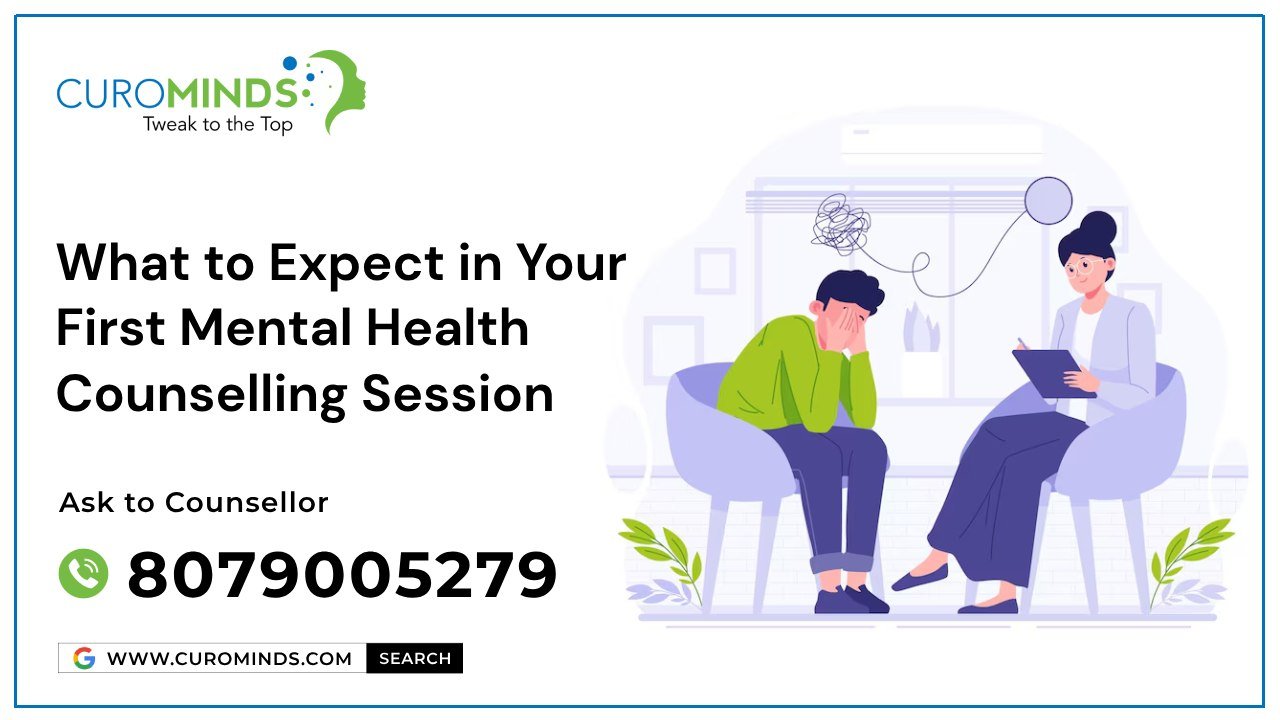Our Expertise


Wondering what happens in a mental health counselling session? This heart-to-heart article walks you through the experience—step by step. From emotions, myths, to real-life benefits, here’s everything Indian students, professionals, and parents need to know before their first therapy session. Clarity, compassion, and confidence—all in one place.
In India, every 1 in 7 people suffers from mental health issues—yet, very few seek help. The word therapy still feels like a big, scary thing. And let’s be honest, walking into a mental health counselling session for the first time can feel like stepping into the unknown.
Maybe you’re a college student battling anxiety before exams. Maybe you’re a mom silently struggling with postpartum blues. Or a corporate employee burnt out by deadlines, but smiling anyway in Zoom meetings.
It’s okay. You’re not alone. And that first session? It’s not about being “fixed.” It’s about being heard.
A mental health counselling session is a private conversation between you and a licensed therapist. It’s a safe, judgment-free space where you talk about emotional stress, anxiety, or personal struggles. The goal is to help you feel mentally strong, clear-headed, and supported. You don’t need a diagnosis to start.
Think of it like a guided conversation. Except this time, the focus is entirely on you. It’s not advice-giving like relatives do. It’s listening, understanding, and gently showing you new ways to cope and heal.
You don’t need to be “mad” to go for therapy. You just need to be human.
| Factor | Mental Health Therapist | Friend |
| Training | Certified, professionally trained | Not trained in psychology |
| Listening Style | Non-judgmental, structured, unbiased | Often influenced by personal views |
| Privacy | Confidential and bound by ethics | May unintentionally share or judge |
| Advice-Giving | Helps you find your own answers | Might give personal advice |
| Emotional Safety | Emotionally safe, no interruptions | Sometimes distracted or emotionally involved |
In your first mental health counselling session, the therapist usually starts by making you feel comfortable. Here’s what usually happens, step by step:
You’re not expected to have all the answers. It’s okay to say “I don’t know.” The therapist is trained to gently lead the way. The first session is more about understanding your background, lifestyle, mental wellness patterns, and goals. It’s the beginning of building trust. Sessions are usually 45 to 60 minutes long and fully confidential. Whatever you say stays between you and the therapist.
Not really, but here’s what helps:
Entering a mental health counselling session with an open mind is more important than having things “figured out.” You don’t need to pretend to be okay. This is one place where masks can come off.
During a mental health counselling session, many people feel lighter just being able to talk. But some feel overwhelmed too. That’s part of healing. It’s like opening a tightly shut drawer—dust flies, but space is created.
You might feel tired afterward. That’s emotional release. It’s normal and even healthy. You might also feel a little self-conscious. That fades with time.
Some people laugh. Some cry. Some say very little. Every experience is unique.
In India, we often suffer in silence. The cultural pressure to appear “strong” or “normal” can be suffocating. But here’s the thing:
That one mental health counselling session can be the first step to real freedom. Emotional freedom. Mental peace.
It can help you:
It’s not a magic cure. But it is a powerful beginning.
In cities like Mumbai, Bangalore, and even Tier 2 towns like Indore or Lucknow, more people are now seeking therapy. Because the taboo is breaking. People are realising that asking for help is a sign of strength, not weakness.
If you’ve been thinking about going for your first mental health counselling session, take this as a sign. It’s okay to feel nervous. It’s okay to not know what to say. Just show up. The rest unfolds.
You deserve to feel better. You deserve emotional support. And you are not alone.
Maybe this blog is not just about “what to expect.” Maybe it’s about giving you the courage to take that first step.